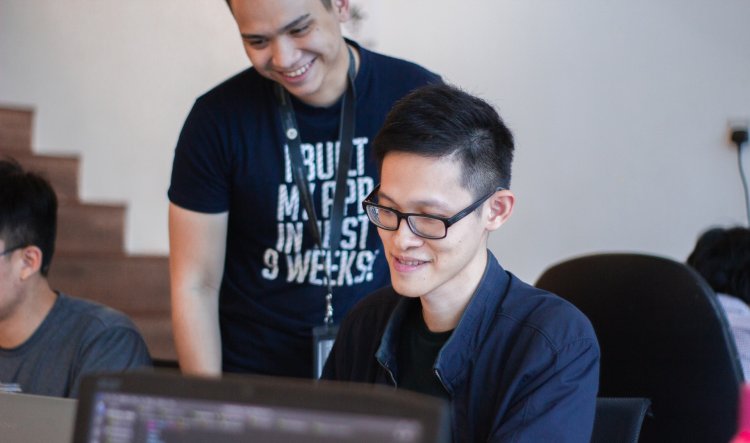Co-Author, Dr Adams Adieza
As of April 2021, according to the Malaysian Department of Statistics, unemployment in the country stood at 4.6% (742,700 people). A key data point that worries the government in that report is the stagnant 65.4% employment-to-population (E2P) ratio. E2P ratio indicates the ability of an economy to create employment. Discount the effect of Covid-19, the Malaysian economy can do better at creating more job opportunities, especially high-paying job opportunities, for the citizenry. In this article, we will share ideas on how universities in Malaysia can take the lead in building start-ups, especially technology start-ups that will help the country provide the much-needed high-quality jobs for sustainable growth.
At a time when high-paying jobs continue to elude young people across the world, including Malaysia, and society is looking up to universities and colleges to produce individuals who not only have an excellent grasp of current socio-economic challenges but also possess streetwise ideas for overcoming them, the all-important entrepreneurship education must be taken to a whole new level. Although Malaysia as a country has made significant investments in entrepreneurship education over the last few years, and appreciable results achieved, there is still a very big room for improvement. In relation to what comparable countries are achieving and the latent potentials of the country, 10.2% student entrepreneur rate and 4.6% graduate entrepreneur rate are way lower than possibilities.
To address this problem and set Malaysia on a path to an Innovative Country in 2030 and a high-income economy during the decade, the focus of entrepreneurship education must move to an innovation-driven enterprise. Innovation-driven entrepreneurship is almost always about the application of new technology to solve critical societal problems.
Technology Startups – the Holy grail of Entrepreneurship Education
Start-ups generally are early-stage businesses that attempt to solve customers’ problems by introducing new products or services which deliver a quantum leap in value. Technology start-ups (tech start-ups for short) are a particular kind of start-ups that rely on or leverage emerging technologies to scale new solutions. A key term in the definition of tech start-ups is ‘scale’. When new solutions get scaled, they become available to more people in more places. Scale also comes with a decrease in the cost of acquisition. Think of any technology solution you enjoy today. From smartphones to aeroplanes, to drones and even medicines, the prices of these solutions keep going down as new technology is applied.
In the developed world, universities have become hotbeds for the development of this kind of enterprise. Harvard Business School, The Garage at Northwestern University, Hasso Plattner Institute of Design at Stanford, Enterprise at the National University of Singapore, Hebrew University Innovation Lab in Israel, London Business School among others have become factories for innovation-driven entrepreneurship and for hatching high-growth technology start-ups. China recently announced that it is transforming 12 of its universities to rival MIT and Stanford in terms of the development of disruptive innovative solutions. Other emerging economies are aggressively positioning their universities to be centres of innovation-driven entrepreneurship. A few Malaysian universities like Universiti Malaysia Kelantan and Asian Business School have recently embarked on similar journeys. But for impact at a national scale, a critical mass of higher learning institutions needs to invest in structures that foster innovation-driven entrepreneurship. From our experience helping to set up and drive this kind of structure in UMK and Nigeria, there are 7 essential building blocks.
Positioning Universities to be Factories for Tech Startup
The commitment of the Top Management of the University
The Vice-Chancellor and his/her team at the top level need to be fully on board and committed to making their universities a top-ranked centre for innovation-driven entrepreneurship. This commitment should be in the form of an official policy statement backed with targeted investments. In UMK for instance, innovation-driven entrepreneurship is a key strategic goal. The university recently established Ignite Venture Innovation Lab, a physical space for training students on how to leverage new technologies to start a business. It is recommended that each university set up Vice Chancellor’s Award for New Startups. This is for both individual staff members and units of the university that offer the most support for the innovation-driven entrepreneurship goal of the university.
Physical space for experimentation and incubation
For coordination and as a symbol of commitment to realizing innovation-driven entrepreneurship, a physical structure, often called Startup Innovation or Incubation Lab, is essential. This must be an informal, non-classroom and inspiring space for searching, grooming, and supporting members of university communities to innovate and scale their technology solutions. The Garage at Northwestern University is a typical example of this kind of structure. The lab has a dedicated management team, and it is equipped with tools and resources necessary for structured but experiential learning, experimentation, prototyping new ideas and taking validated ideas to market.
Availability of talented champions
While top-management commitment is a must, they cannot be bothered with the operational activities of a Tech Startup Lab. There must be a good number of young members of staff who are passionate about tech startups and have the required skills to equip students and faculty members with the tools to leverage emerging technologies to solve real-world problems and find a startup.
Linking up with the industry and outside world
Stanford, the Garage at Northwestern and NUS Enterprise and others owe their successes as university-based innovation and startup labs in part to their solid interaction with the industry and the business community. Regular speaker events, networking, and direct mentorship of students by CEOs and entrepreneurs are critical success factors. Another area the industry can help is through provisions of grants and funding for translational entrepreneurship research. The private sector, both as individuals and as a collective can set up a regular competition and program for identifying and supporting students and faculties with creative tech business ideas. Petronas Ventures through its Future Tech Programs has been making encouraging efforts on this front.
A widespread mindset of going the extra mile among faculty members
The Startup Lab alone cannot deliver the desired outcome. The role of individual faculty members cannot be overemphasized. Universities will only succeed in their quest for innovation-driven entrepreneurship to the extent that members of staff are ready and committed to going the extra mile to work with the lab, design learning activities that enable students to acquire real-life problem-solving and innovation skills, and inspire them to participate in off-campus activities that foster innovation. For Malaysia to achieve its vision of an Innovation Country, it has become necessary to make ‘number of student tech startups’ a key requirement for promotion of academic staff, much the same way the number of publications currently is.
The supportive internal startup ecosystem
Apart from the support of individual faculty members, every, or at least relevant unit of the universities must collaborate actively to achieve the goal of innovation-driven entrepreneurship. The strategic goals of innovation-driven entrepreneurship must be formally cascaded down to faculties and departments in form of KPIs. With Vice Chancellor’s Startup Awards (mentioned earlier on) in place, faculties and departments will be rewarded for their supports.
The supportive external startup ecosystem
The university is only but a small section of the larger economy. For them to succeed in their efforts to foster innovation-driven entrepreneurship, there must be an enabling environment in the country at large. Government policies must be innovative and business-friendly and new reforms that facilitate, and support startups must be well-designed and well-implemented. Government efforts at supporting startups must be target-driven, well-coordinated, and easily accessible to qualified student applicants. Universities still have a role to play in this. They must actively participate in the policymaking and reform process through the conduct of policy-oriented research, participation in policy dialogues, and encouraging sabbatical leave in key government institutions. In a nutshell, universities must earn the right to be involved by the government when making critical policy decisions.
Conclusion and Call to Action
To conclude, the rapid pace of technological change in the world today brings both challenges and opportunities to Malaysia. As a challenge, it creates structural unemployment in some industries. On the positive side, it offers limitless opportunities for innovations and the delivery of creative solutions to critical problems that the country faces. Business ventures are important vehicles for delivering new solutions. The societies or countries that win eventually are those that are proactive in making impact investments and putting in place structures that create a critical mass of innovative businesses.
Universities being an important agent of change can and should take the lead in driving innovation-driven entrepreneurship. To this end, as explained earlier, the top management of each university must show genuine commitment, establish on-campus physical space and structure for experimentation, develop or engage talented champions for tech startups, establish an ongoing relationship with the industry, incentivize staff and departments to support grooming innovation-driven enterprise, and as a collective, universities must work with policy-makers to create an enabling environment for innovation-driven enterprises to thrive.
Dr Adams Adieza is a senior lecturer at Universiti Malaysia Kelantan and has experience in the start-ups eco-systems in both Nigeria and US. Dr Azizi is a professor at UMK with a passion for technology, innovation and entrepreneurship.
















